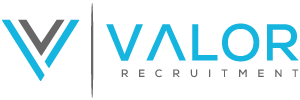Diversity and Inclusion in Consulting Recruitment: Best Practices and Strategies
Diversity and inclusion (D&I) are crucial elements of a successful and effective consulting recruitment strategy. D&I refers to the recognition, appreciation, and inclusion of differences among people, such as their gender, race, ethnicity, age, religion, sexual orientation, socioeconomic status, and abilities.
Diversity and inclusion in consulting recruitment mean attracting, hiring, and retaining a diverse pool of talented individuals with varied backgrounds and experiences. A diverse workforce can bring different perspectives, ideas, and problem-solving approaches, which can lead to better decision-making, innovation, and creativity.
Inclusion means creating a workplace culture that values and respects the differences of its employees and ensures that everyone feels included and heard. It involves providing equal opportunities, resources, and support to all employees regardless of their background, and making sure that everyone has a fair chance to succeed .
D&I in consulting recruitment is essential because it enables recruitment and consulting firms to build a more dynamic and creative workforce that can better understand and serve a diverse set of clients. It also enhances the firm’s reputation and competitiveness, as clients and stakeholders increasingly prioritize D&I in their business partnerships .
In addition, D&I can improve employee morale and engagement, leading to higher productivity and job satisfaction. It also promotes social justice and equality, which are crucial values for a fair and just society.
The Importance of Diversity and Inclusion in Consulting Recruitment
Diversity and inclusion are critical components of successful consulting recruitment. Recruitment and consulting firms that prioritize diversity and inclusion in their recruitment efforts can reap many benefits, including improved problem-solving, creativity and innovation, market reach, decision-making, employee engagement and retention, and reputation.
Diversity and inclusion are essential elements of successful consulting recruitment. Recruitment and consulting firms that embrace diversity and inclusion in their recruitment efforts can reap many benefits, such as:
- Improved problem-solving: A diverse team brings different perspectives, experiences, and backgrounds to the table. This diversity of thought can help teams identify innovative solutions to complex problems.
- Enhanced creativity and innovation: A team composed of individuals from different cultures, ethnicities, genders, and backgrounds fosters a culture of creativity and innovation.
- Expanded market reach: A diverse team can better understand and serve a diverse client base, thereby expanding the firm’s market reach and improving client satisfaction.
- Improved decision-making: Diverse teams tend to make better decisions because they take into account a wider range of perspectives and experiences.
- Increased employee engagement and retention: Employees are more likely to feel valued and included when they see diversity and inclusion reflected in the workplace. This can lead to improved engagement and retention rates.
- Positive reputation: Consulting recruitment firms that prioritize diversity and inclusion can build a positive reputation as an employer of choice and a firm that is committed to social responsibility.
Consulting Recruitment on Reviewing the Current Recruitment Processes and Identifying Potential Biases
Consulting recruitment refers to the process of hiring external consultants to review an organisation’s recruitment practices and identify any potential biases that may be present in the process. The goal of this type of recruitment consulting is to help the organisation create a more fair and equitable recruitment process that is based on merit and is free from any form of discrimination or bias.
The consulting recruitment firm will typically conduct a thorough review of the organisation’s recruitment practices, including the job postings, interview questions, selection criteria, and overall recruitment strategy. They may also analyse data on the diversity of the current workforce and the demographics of the applicant pool to identify any disparities or areas for improvement.
Based on their findings, the recruitment and consulting firm will make recommendations for changes to the recruitment process that can help to reduce bias and increase diversity and inclusion. This may include changes to the way job postings are written, the types of interview questions that are asked, or the selection criteria that are used to evaluate candidates.
Overall, consulting recruitment on reviewing the current recruitment processes and identifying potential biases can help organisations to create a more inclusive and diverse workplace that attracts top talent from a range of backgrounds and experiences.
Consulting Recruitment on Implementing Blind Screening Techniques to Mitigate Bias
Consulting recruitment firms often face challenges when it comes to hiring a diverse workforce that reflects the broader society they serve. One way to mitigate bias in the recruitment process is by implementing blind screening techniques. Blind screening involves removing personal information such as name, gender, age, and education from resumes and cover letters, so that recruiters can evaluate candidates solely based on their skills and experience. This approach aims to eliminate unconscious biases that may be influenced by factors such as gender, ethnicity, or socio-economic background, and increase the likelihood of hiring the most qualified candidates. In this context, recruitment and consulting firms may need to evaluate the potential benefits and challenges of implementing blind screening techniques, and develop strategies to overcome any potential limitations that may arise.
When consulting recruitment firms implement blind screening techniques to mitigate bias in their recruitment process, they can expect to see several benefits. These benefits include:
When consulting recruitment firms implement blind screening techniques to mitigate bias in their recruitment process, they can expect to see several benefits. These benefits include:
1. Increased diversity: Blind screening can help attract a wider range of candidates from different backgrounds and experiences, leading to a more diverse workforce.
2. Improved fairness: Blind screening reduces the influence of unconscious bias, making the recruitment process fairer for all candidates.
3. Better candidate fit: Blind screening allows recruiters to focus on candidates’ skills and experience, leading to a better match between the candidate and the job requirements.
However, there are also potential challenges that consulting recruitment firms may need to address when implementing blind screening techniques. These challenges include:
1. Practical limitations: Implementing blind screening can be time-consuming and resource-intensive, particularly for firms with large volumes of applications.
2. Unintended consequences: Blind screening may result in unintended consequences, such as removing important information that would have been helpful in evaluating the candidate, such as relevant community involvement.
3. Resistance to change: Some recruiters may be resistant to change and may require additional training to learn how to use blind screening effectively.
To overcome these challenges, recruitment consulting firms can develop strategies such as providing additional training to recruiters, leveraging technology to automate the blind screening process, and evaluating the effectiveness of blind screening on an ongoing basis. By doing so, recruitment consulting firms can mitigate bias in their recruitment process and build a more diverse and inclusive workforce.
Consulting Recruitment on Developing Inclusive Job Descriptions and Job Postings
Consulting recruitment firms are increasingly recognising the importance of diversity and inclusion in their recruitment efforts. One key strategy for achieving this is by developing inclusive job descriptions and job postings. Inclusive job descriptions and postings use language that is gender-neutral, focuses on skills and qualifications, avoids unnecessary requirements, highlights the company’s commitment to diversity and inclusion, makes the job accessible to everyone, and uses inclusive terminology. By developing inclusive job descriptions and job postings , consulting recruitment firms can attract a more diverse pool of candidates, eliminate bias in the hiring process, and create a more inclusive and equitable workplace culture.
Developing inclusive job descriptions and job postings is an important aspect of the recruitment process for consulting recruitment firms. Inclusive job descriptions and postings can help attract a more diverse pool of candidates and eliminate bias in the hiring process. Here are some tips for developing inclusive job descriptions and job postings:
1. Use gender-neutral language: Avoid using gender-specific language, such as “he” or “she,” in job descriptions and postings. Instead, use gender-neutral terms like “they” or “the successful candidate.”
2. Focus on skills and qualifications: Focus on the skills and qualifications needed for the job, rather than personal characteristics or assumptions about the ideal candidate.
3. Avoid unnecessary requirements: Avoid listing unnecessary requirements or qualifications that may be exclusionary, such as requiring a specific degree or a certain number of years of experience.
4. Highlight diversity and inclusion: Include language in the job description that highlights the company’s commitment to diversity and inclusion, and emphasises that all qualified candidates are encouraged to apply.
5. Make the job accessible: Ensure that the job description and posting are accessible to everyone, including individuals with disabilities. This can include using plain language, providing alternative formats, and ensuring that any required application processes are accessible.
6. Use inclusive terminology: Avoid using terms that may be considered discriminatory or offensive, such as racial slurs or ableist language.
By developing inclusive job descriptions and job postings, recruitment and consulting firms can attract a more diverse pool of candidates and ensure that the hiring process is fair and unbiased.
Consulting Recruitment on Engaging Diverse Talent Through Targeted Outreach and Recruitment Strategies
Consulting recruitment firms are increasingly recognising the need to build a more diverse and inclusive workforce. One key strategy for achieving this goal is to engage diverse talent through targeted outreach and recruitment strategies. This can include building partnerships with professional organisations and community groups, networking events, campus recruiting, social media outreach, employee referral programs, and developing inclusive recruitment materials. By implementing these targeted outreach and recruitment strategies, consulting recruitment firms can attract a more diverse pool of candidates, create a more inclusive workplace culture, and ensure that the firm is able to draw from a wider talent pool to meet its business needs.
Engaging diverse talent through targeted outreach and recruitment strategies is a critical component of building a more diverse and inclusive workforce in consulting recruitment firms. To achieve this goal, recruitment and consulting firms can implement several strategies, including:
- Building partnerships: Consulting recruitment firms can partner with professional organisations and community groups that represent diverse communities and provide access to talent pools that may not otherwise be reached through traditional recruitment channels.
- Networking: Networking events that target underrepresented groups in consulting recruitment can be an effective way to meet diverse candidates and build relationships.
- Campus recruiting: Consulting recruitment firms can target universities and colleges with diverse student populations and establish relationships with career services offices and student organisations to attract a diverse pool of candidates.
- Social media outreach: Social media platforms can be leveraged to reach diverse candidates and promote job opportunities to a wider audience.
- Employee referral programs: Referral programs can encourage employees to recommend candidates from diverse backgrounds, and provide incentives for successful referrals.
- Inclusive recruitment materials: Recruitment materials, such as job descriptions and postings, can be designed to appeal to a broader audience and be more inclusive of underrepresented groups.
By implementing these targeted outreach and recruitment strategies, consulting recruitment firms can attract a more diverse pool of candidates, create a more inclusive workplace culture, and ensure that the firm is able to draw from a wider talent pool to meet its business needs.
In conclusion, consulting recruitment is a crucial process for any consulting firm looking to build a team of skilled and capable consultants. By implementing the best practices and strategies of consulting recruitment, firms can attract, evaluate, and hire top talent that will drive success and growth. Valor Recruitment is aware that it is essential to focus on creating a positive candidate experience, building a strong employer brand, utilising a comprehensive selection process, and providing ongoing training and development for employees.
Contact Us










